Checklist: How to Verify a Home Builder Is Truly Experienced and Well-Reviewed
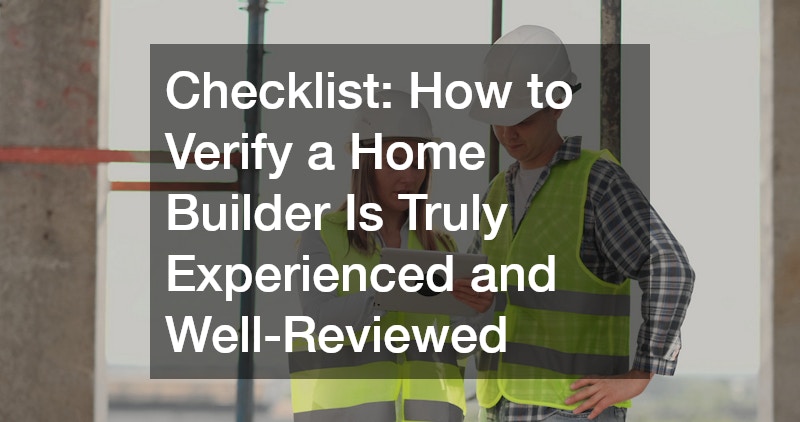
-
Always confirm licensing and insurance to ensure legal compliance and financial protection for your project.
-
Prioritize builders with at least 5–10 years of local experience and a solid portfolio that matches your project’s scale and style.
-
Rely on third-party platforms like Google, Houzz, and BBB for verified reviews rather than just website testimonials.
-
Visit previous or current job sites to inspect craftsmanship and, if possible, talk to past clients about their experience.
-
Check for professional credentials and memberships, such as with NAHB or green building certifications, which signal quality standards.
-
Evaluate how well the builder communicates—responsive, clear, and professional communication is essential for a successful project.
Introduction
Choosing the right home builder can be one of the most important decisions you’ll make as a homeowner. Whether you’re building a custom dream home or planning a major remodel, the quality of the builder you hire directly impacts the outcome, budget, and timeline of your project. Unfortunately, flashy websites and clever marketing often mask a lack of true industry expertise. That’s why it’s critical to know how to verify if a home builder is truly.For those beginning their journey, see our Top 7 Mistakes Homeowners Make When Choosing a Remodeling Company to avoid common pitfalls. experienced and well-reviewed before signing any contracts.
A home builder who is experienced and well-reviewed brings more than just tools and materials—they bring reliability, craftsmanship, and peace of mind. These professionals have a solid track record of delivering high-quality work and maintaining excellent relationships with past clients. But how can you separate skilled builders from those who simply talk the talk? This guide provides a practical, step-by-step checklist to help you investigate credentials, evaluate past work, and validate reviews and references. By following these smart verification strategies, you’ll ensure you hire a builder with the skills, transparency, and integrity to complete your project successfully—and stress-free.
1. Confirm Licensing and Insurance

Before entrusting someone with your home, the first thing you should confirm is whether they hold the proper licensing and insurance. Every state has different licensing requirements, but legitimate home builders will be more than willing to provide proof. Licensing ensures that the builder adheres to state and local building codes, passes necessary inspections, and is recognized as a professional in the field. Unlicensed builders can cost you dearly, not only in quality but also in potential legal liabilities.
Beyond licensing, ask for verification of general liability insurance and workers’ compensation. General liability protects you in case your property is damaged during construction, while workers’ comp ensures you aren’t liable if a laborer gets injured on the job. Request physical or digital proof of these policies and don’t be afraid to call the insurer to confirm coverage.
To walk through a systematic verification, consult our guide on Contractor Verification.
Key Checklist:
- Use your state’s Contractor License Lookup portal.
- Verify they carry general liability insurance.
- Confirm workers’ compensation coverage.
- Request documentation for your records.
2. Ask About Years of Experience
Experience is one of the best indicators of reliability. A home builder who has been working in the industry for several years is more likely to have encountered and resolved a wide range of issues. Ask how long they’ve been in business under their current company name, especially in your geographic area, as local experience matters in understanding zoning laws and environmental concerns.
Request a detailed portfolio of their completed projects, particularly those similar in scale and style to your own. Pay attention to consistency in the quality and architectural styles that match your taste. Experienced builders are also better at managing budgets, predicting timelines, and navigating permit requirements.
Key Checklist:
- Look for at least 5–10 years of local experience.
- Ask about the size and scope of past projects.
- Request before-and-after photos.
- Check for experience with homes in your desired architectural style.
3. Read Verified Reviews
Today’s digital landscape makes it easier than ever to learn what previous clients think about a builder’s work. However, not all reviews are created equal. While testimonials on a builder’s website are often curated, third-party platforms like Google, Houzz, and the Better Business Bureau provide more transparent feedback. These sources usually verify that reviews come from actual clients.
Look for recurring themes in the feedback—positive or negative. A builder with a pattern of excellent communication, timely project completion, and high-quality work likely provides consistent service. Be wary of builders with sudden drops in ratings or vague complaints that aren’t addressed publicly. It’s also a red flag if a builder has no online presence or reviews at all.
Key Checklist:
- Check Google Reviews for authenticity and recency.
- Browse the Houzz Directory for builders near you.
- Look up the builder’s BBB rating and complaints.
- Focus on reviews mentioning timelines, communication, and craftsmanship.
For strategies in evaluating review quality, see Interpret Customer Reviews Like a Pro.
4. Visit Past Job Sites

A reputable builder should have no problem giving you access to past or current job sites. Walking through a completed home or an ongoing build offers a valuable glimpse into their workmanship. It allows you to see the attention to detail, structural soundness, and the quality of materials used.
Pay close attention to details like alignment of trim, consistency of finishes, cleanliness of job sites, and the state of fixtures and fittings. Talking to the homeowners—if they’re available—is another great opportunity. Ask them about their experience with the builder, including how they handled changes, resolved issues, and stuck to budgets and timelines.
Key Checklist:
- Ask for addresses of recent builds.
- Evaluate exterior and interior workmanship.
- Look at trim details, finishes, and layout execution.
- Talk to homeowners about communication and satisfaction.
5. Check Builder Credentials
Professional builders usually hold memberships in local or national industry organizations. These affiliations suggest a commitment to best practices, ethics, and ongoing education. Being part of organizations like the National Association of Home Builders (NAHB) can be a strong indicator that the builder is serious about maintaining professional standards.
Credentials related to green building (such as LEED certification) or energy efficiency may also reflect a builder’s attention to innovation and sustainability. Such certifications show a willingness to go beyond the bare minimum and meet higher performance standards. Check that these credentials are current and not expired.
Key Checklist:
- Look for NAHB membership or local home builders’ guilds.
- Check for certifications in energy-efficient building.
- Verify membership status online.
- Ask how these credentials benefit your project.
6. Evaluate Communication Style
A builder’s communication skills are just as important as their technical capabilities. Before you sign any contracts, take time to evaluate how clearly, consistently, and professionally they communicate with you. Are they responsive to emails and calls? Do they answer your questions thoroughly, or give vague, generic responses?
Effective communication ensures that both you and your builder are on the same page throughout the project. You should feel confident that they understand your vision, can explain their process clearly, and will provide regular updates. A lack of clear communication can lead to misunderstandings, cost overruns, and scheduling conflicts.
Key Checklist:
- Are they responsive to inquiries and follow up promptly?
- Do they explain technical concepts clearly and respectfully?
- Can they provide a clear process overview from planning to completion?
- Do they seem open to feedback and change orders?
7. Request References from Recent Clients
Any builder can cherry-pick a few glowing reviews online, but speaking directly with recent clients is one of the best ways to get an unfiltered sense of how they truly operate. Ask for at least 3–5 references from projects completed in the last 12–24 months.
When you speak to those references, don’t just ask if they’re “satisfied”—dig deeper. Find out whether the builder met deadlines, respected the budget, and maintained professionalism throughout. Ask if they encountered any issues and, more importantly, how the builder resolved them.
Good builders will have no hesitation in providing references. If they resist or make excuses, it could be a red flag.
Checklist:
- Ask for multiple recent references.
- Prepare questions around budget adherence, timelines, and issues.
- Gauge the tone and enthusiasm of former clients.
- Ask if they’d hire the builder again.
8. Review Contract Details Thoroughly
A detailed, transparent contract is a must-have. It not only protects you legally but also sets clear expectations for timelines, deliverables, responsibilities, and payment milestones. A vague or generic contract increases your risk for misunderstandings and budget overruns.
Make sure the contract outlines the total cost, what’s included (and excluded), the estimated timeline, how delays will be handled, and who pays for what. If anything feels unclear, ask the builder to explain it or revise the language.
You should also look for clauses around dispute resolution, warranty coverage, and change orders. A reputable builder will have no issue walking you through the fine print or allowing a lawyer to review the contract.
Checklist:
- Read the entire contract before signing.
- Ensure payment schedule is based on milestones, not just dates.
- Confirm inclusion of materials, warranty details, and change order process.
- Don’t skip legal review if you’re unsure.
Deepen your understanding with Builder Contract Clauses Every Homeowner Should Review.
9. Investigate Project Management Process
Experienced home builders don’t just build—they manage. That means they have systems in place to schedule subcontractors, source materials, handle inspections, and address problems before they become delays. Ask the builder to walk you through their project management workflow.
Do they use project management software (like Buildertrend or CoConstruct) to track progress? How often will they conduct walkthroughs with you? Will there be a project manager on-site every day? These questions will help you determine how organized and proactive the builder is.
Good project management also means anticipating issues before they arise. Builders with structured systems are less likely to face delays due to miscommunication, missed inspections, or material shortages.
Checklist:
- Ask about project timelines and milestone check-ins.
- Find out how scheduling and subcontractors are managed.
- Ask who oversees the day-to-day site activities.
- Look for use of project management tools.
10. Look for Transparent Pricing Practices
A builder who is experienced and well-reviewed will offer transparent pricing with detailed estimates. This includes itemized lists of labor, materials, permit fees, and contingency allowances. You shouldn’t feel like you’re signing a blank check.
Beware of builders who provide unusually low estimates—they often rely on change orders to raise prices later. Always ask what’s included and what might cause costs to change during construction.
You should also clarify how unexpected costs (due to market fluctuations or design changes) are communicated. A fair builder will notify you before proceeding with any cost-related decisions.
Checklist:
- Request an itemized cost breakdown.
- Clarify allowances and contingency funds.
- Ask how price changes are handled and communicated.
- Get everything in writing before work begins.
11. Verify Warranty and Post-Completion Support
The job isn’t over when construction ends. Reputable builders stand behind their work with a solid warranty and post-construction support. Ask what kind of warranty is offered—one year, two years, or longer—and what it covers.
Builders should also offer a punch list process to fix minor defects or unfinished items after move-in. Without this support, you might be stuck paying for issues that should have been corrected under warranty.
Also inquire how the builder handles warranty claims—do they respond promptly? Is it handled in-house or by subcontractors? Knowing this upfront can save headaches later.
Checklist:
- Ask for a copy of the builder’s warranty.
- Clarify coverage on structural vs cosmetic issues.
- Ensure a punch list process is included.
- Ask about response time for repairs.
12. Assess Their Design Flexibility
A builder’s ability to accommodate your design preferences is critical—especially if you’re customizing your home. While some builders prefer to stick to templates, others are more flexible and collaborative with homeowners and architects.
Bring a list of your desired features and ask if they’ve implemented similar ideas in the past. Discuss how changes are handled during the build and whether there’s room to personalize materials, layouts, or finishes.
A home builder who is experienced and well-reviewed will have the adaptability to balance creativity with structural integrity and cost-effectiveness.
Checklist:
- Ask if changes can be made during construction.
- Discuss customizations vs standard features.
- Review past projects that reflect different styles.
- Determine how flexible they are with third-party designers.
13. Check Timeline Realism
Every builder will give you a projected timeline—but not all estimates are created equal. An experienced builder offers realistic schedules based on current labor, material availability, and permitting constraints.
If a builder promises to finish faster than others, be cautious. It could mean they’re underestimating the scope or rushing through details. Ask how delays are handled and whether they factor in weather, supply issues, and inspection hold-ups.
A builder who is transparent about timelines (and builds in buffer time) is more trustworthy than one who offers unrealistic promises.
See our Home Renovation Timeline: What to Expect from Start to Finish for further context.
Checklist:
- Ask for a week-by-week timeline with milestones.
- Discuss how they handle delays.
- Look at completion dates for past projects.
- Confirm whether permits are factored into the schedule.
14. Analyze Quality of Subcontractors
Most builders don’t do everything themselves—they rely on subcontractors for plumbing, electrical, framing, etc. That’s why it’s important to evaluate the quality and stability of their subcontractor network.
Ask how long they’ve been working with the same team. A high turnover rate may indicate issues with payment or management. Also ask if the subcontractors are licensed, insured, and background-checked.
Subcontractors represent the builder’s standards, so reliable ones are a good sign the builder values quality and consistency.
Checklist:
- Ask how long subcontractors have worked with them.
- Confirm subcontractor licenses and insurance.
- Ask how the builder supervises subcontractors.
- Request examples of subcontractor work quality.
15. Review Safety Practices
Construction is risky work, and safety should be a top priority for any professional builder. Ask what safety protocols are in place and how compliance is ensured.
Do they follow OSHA guidelines? Are workers trained in handling equipment safely? Is the site kept clean and secure after hours?
A safe worksite not only protects workers but also ensures your home is built to last—free from shortcuts or sloppy work that compromises structure.
Checklist:
- Inquire about OSHA compliance.
- Confirm regular safety inspections.
- Ensure the site is secure after hours.
- Ask about safety training for workers.
Conclusion:
Choosing a home builder is about far more than a handshake and a promise—it’s about finding a partner whose experience, reliability, and communication ensure a smooth journey from concept to completion. Use our Complete Home Builder Checklist to guide your selection process and download our Ultimate Renovation Planning Guide to streamline your project from the start.
If you’re new to builder selection, read our 10 Questions to Ask Before Hiring a General Contractor and How to Avoid Home Renovation Scams for more tips.
FAQs:
Q1. How can I verify if a home builder is licensed and insured?
You can verify a builder’s license through your state’s official contractor license board. Many states offer an online lookup tool to confirm their license, check for complaints, and validate insurance coverage.
Q2. Why is it important to read reviews across multiple platforms?
Checking multiple platforms like Google, Houzz, and BBB helps ensure the reviews are authentic and consistent. Look for specific details in reviews about timelines, communication, and overall project satisfaction.
Q3. What should I ask when checking references from past clients?
Ask references about their satisfaction with the final build, how the builder handled delays or issues, if the project stayed on budget, and whether they’d recommend the builder.
Q4. What kind of warranty should a professional home builder offer?
An experienced builder should offer a “1-2-10” warranty: 1 year on labor/workmanship, 2 years on systems (plumbing, electrical), and 10 years on structural components. Always ask for warranty documents in writing.
 Bring Your Dream Pool to Life With These Trendy Pool Upgrades
Bring Your Dream Pool to Life With These Trendy Pool Upgrades  Outdoor Remodeling Projects That Can Help Prevent Pests and Critters
Outdoor Remodeling Projects That Can Help Prevent Pests and Critters 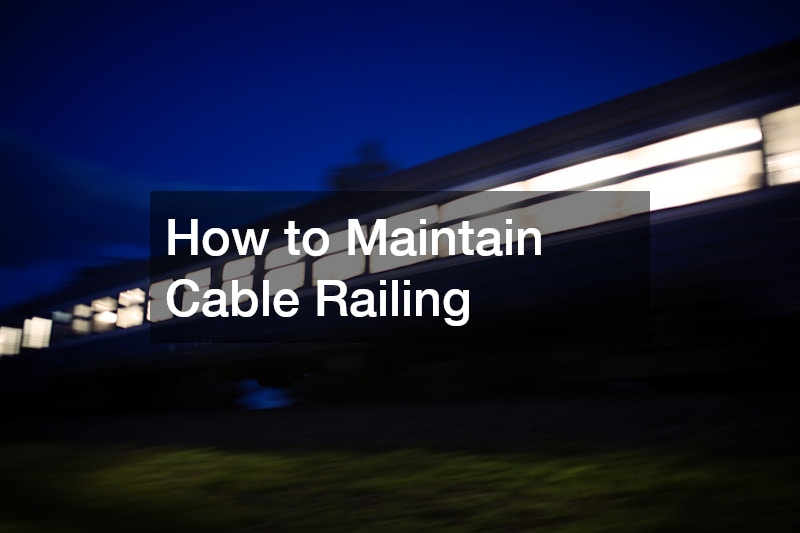 How to Maintain Cable Railing
How to Maintain Cable Railing  Outdoor Living: Creating a Custom Backyard Entertaining Space
Outdoor Living: Creating a Custom Backyard Entertaining Space 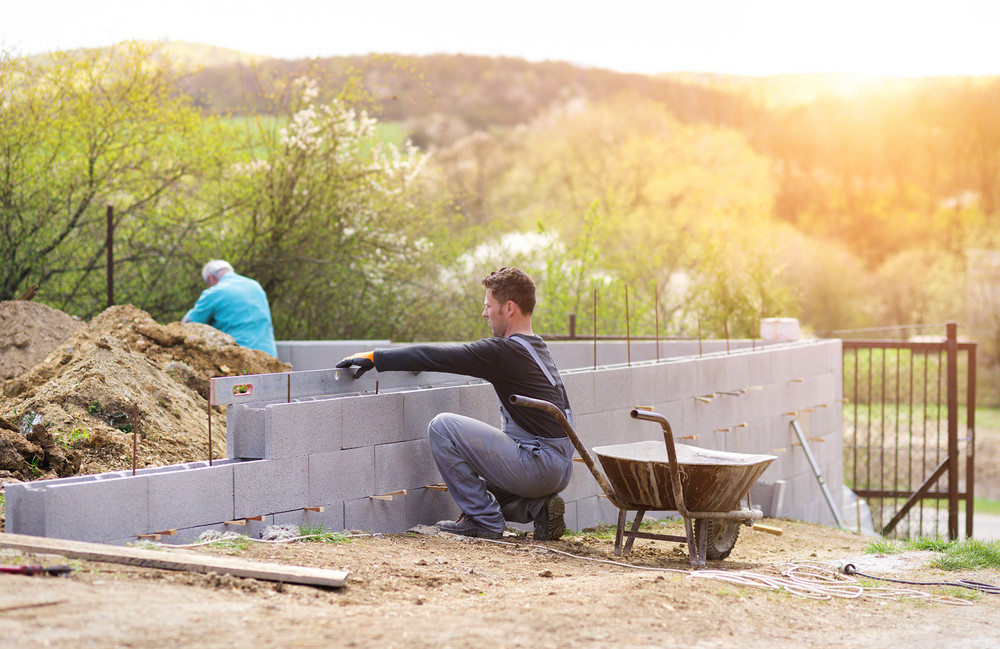 How Retaining Walls Keep Your Landscape Intact
How Retaining Walls Keep Your Landscape Intact  Where to Place Kitchen Cabinet Handles: Top Placement Tips for a Functional Kitchen
Where to Place Kitchen Cabinet Handles: Top Placement Tips for a Functional Kitchen 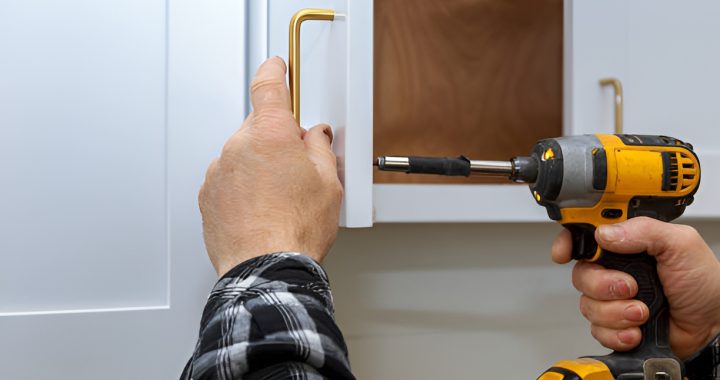 How to Install Kitchen Cabinet Handles on Drawers, Doors, and Different Cabinet Types
How to Install Kitchen Cabinet Handles on Drawers, Doors, and Different Cabinet Types 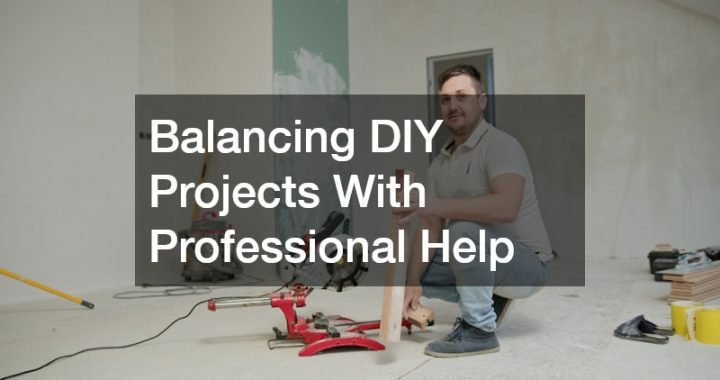 Balancing DIY Projects With Professional Help
Balancing DIY Projects With Professional Help 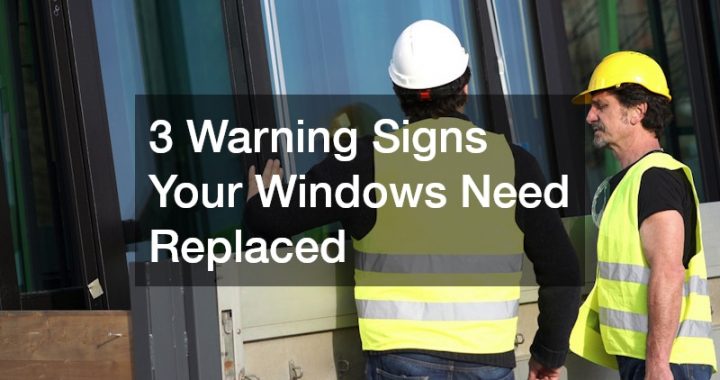 3 Warning Signs Your Windows Need Replaced
3 Warning Signs Your Windows Need Replaced